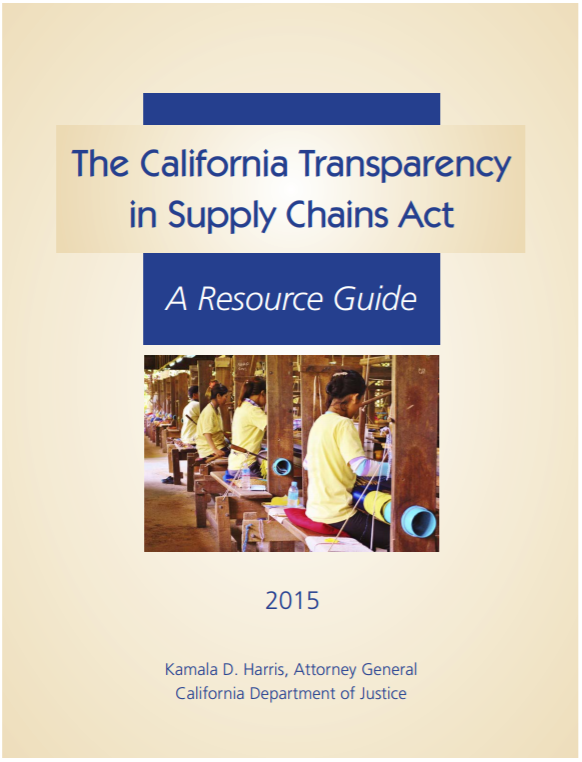The California Transparency in Supply Chains Act does not mandate that businesses implement new measures to ensure that their product supply chains are free from human trafficking and slavery. Instead, the law only requires that covered businesses make the required disclosures – even if they do little or nothing at all to safeguard their supply chains. Companies subject to the Act must therefore disclose particular information within each disclosure category, and the Act offers companies discretion in how to do so.
This Resource Guide is intended to help covered companies by offering recommendations about model disclosures and best practices for developing such disclosures. In each disclosure category, the Guide discusses how a company can provide disclosures that comply with the law, as well as enhance consumers’ understanding of its anti-trafficking and anti-slavery efforts.

